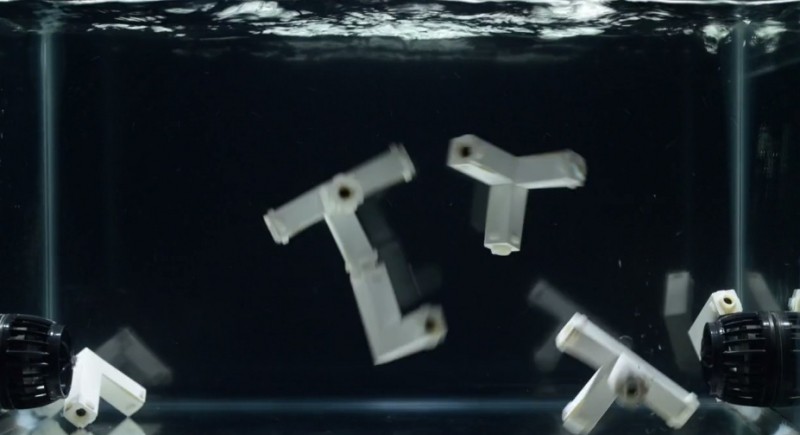Are you familiar with the infinite monkey theorem? The one in which a monkey sitting in front of a typewriter for an infinite amount of time could type up the complete works of Shakespeare (or any other given text).
With that thought in mind, check out this self-assembling chair that researchers at MIT’s self-assembly lab have been working on. The researchers threw six individual pieces into a tub of water that’s getting sloshed around by a couple of fans. Each component has an embedded magnet of a different strength in its end so that it only connects to its corresponding piece.
Given enough time (in this case, about seven hours), the chair is able to assemble itself. Keep in mind of course that this is a small-scale project although with a large enough tank, magnets and fans, I suppose it could be possible to replicate it in full-size.
It’s certainly cool to witness when sped up although it’s not yet practical.
Found is a TechSpot feature where we share clever, funny or otherwise interesting stuff from around the web.

https://www.techspot.com/news/59794-watch-small-scale-chair-autonomously-assembles-itself.html